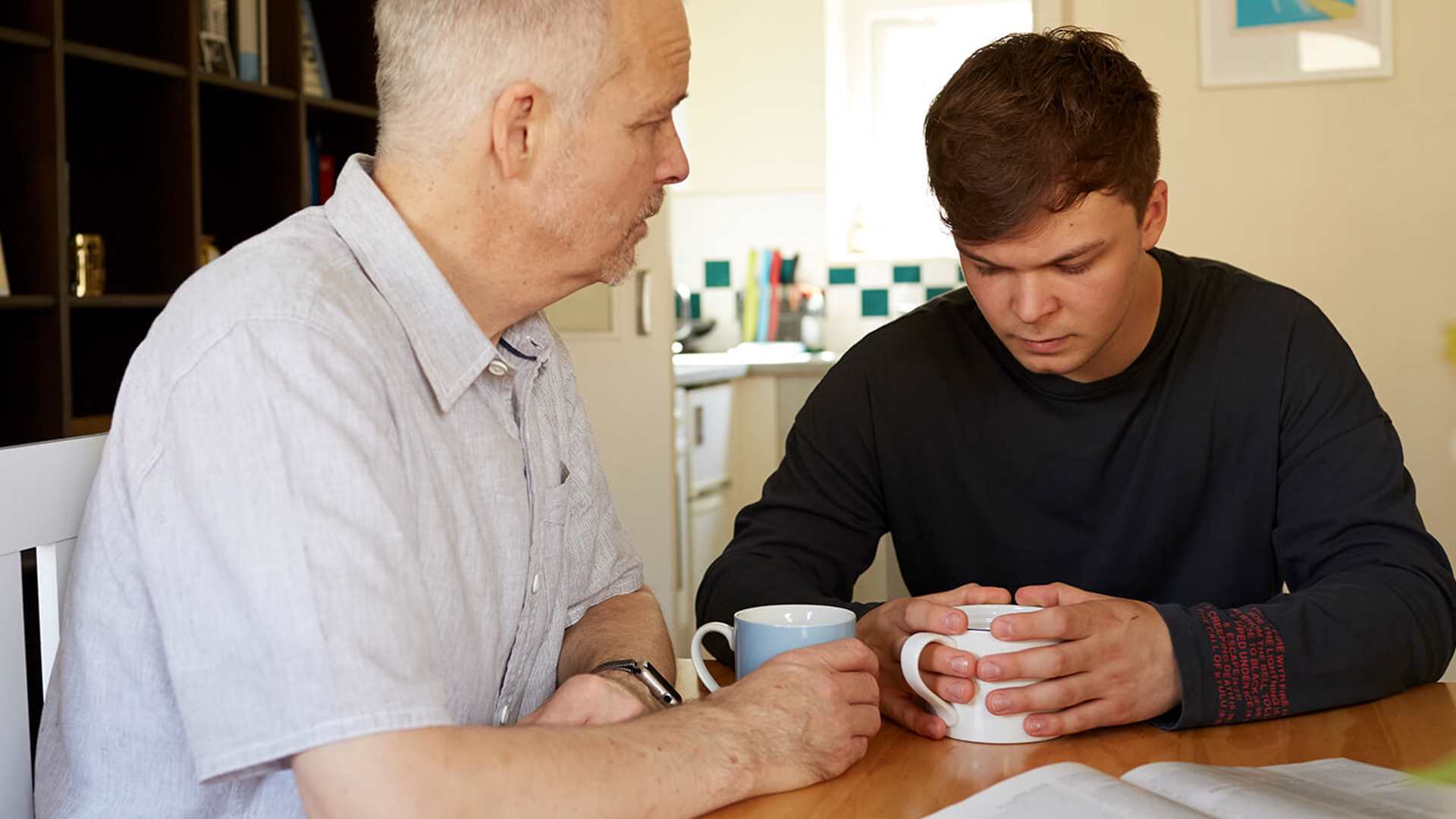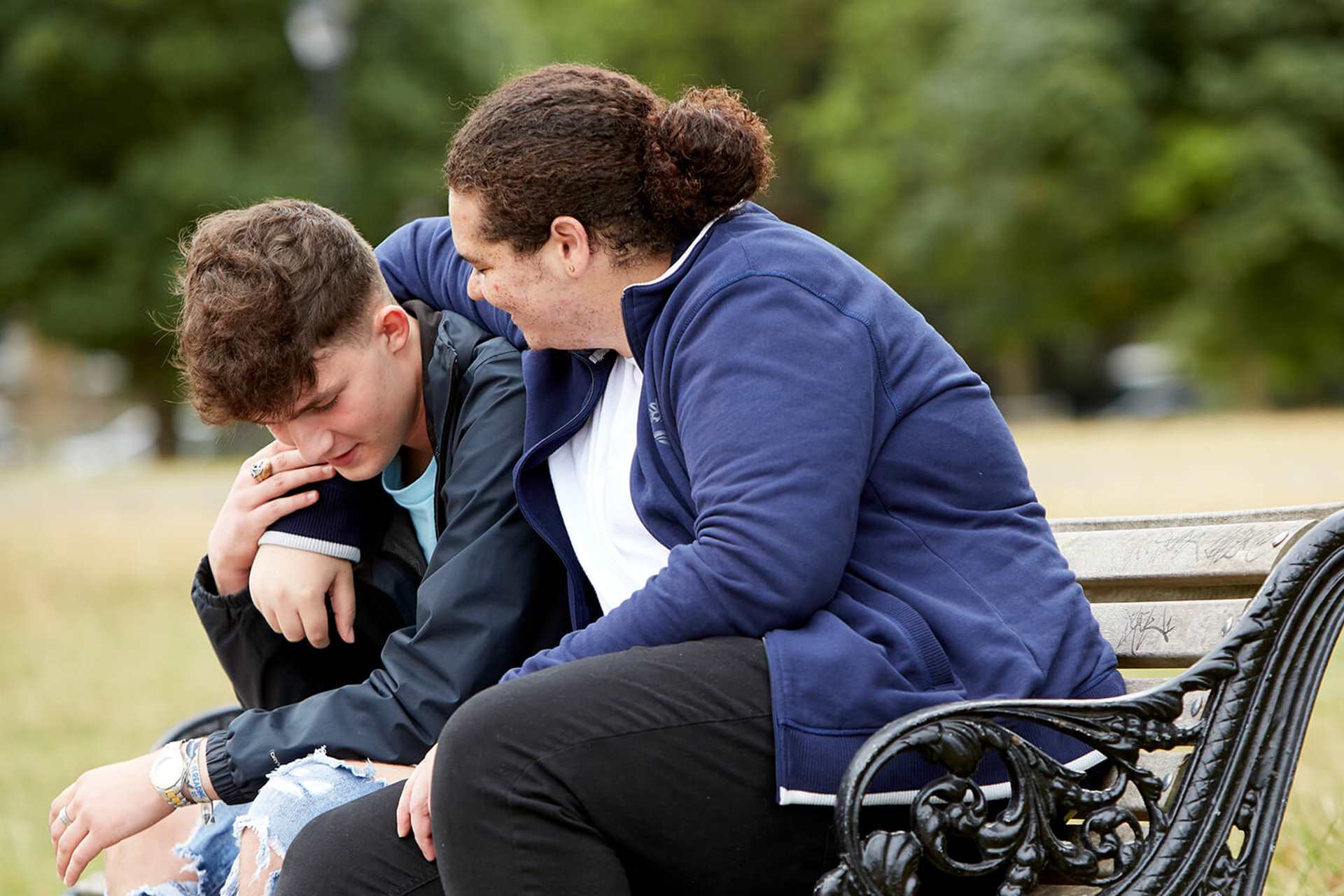Topics mentioned: family relationships, feeling down and unable to cope, anxiety
About: When Ffion's parents separated, it came as a shock. Here she explains how she coped and looked after her mental health when her dad left the family home.
As a child it was very difficult to hear my parents argue as much as they did. I grew up believing that it was normal for your parents to argue, sleep apart and to ignore each other to avoid an argument. As a young child, I did not understand what was going on or see it as a problem.
My dad was my best friend growing up and I really felt I could share anything with him, and he felt the same. When I was 13, he told me that once I had finished school, he would leave the family home. This was difficult to hear, and came as a real shock to me. When I was 17, my dad decided it was finally time to leave. I had spent four years hoping that this day would not arrive. Even though I had expected it, I did not want to believe it was true.
I grew up believing that it was normal for your parents to argue, sleep apart and to ignore each other to avoid an argument.
The impact of the separation
The day he left, my whole life changed. It was horrible seeing him move across the country to start a new life, leaving me behind. I had always picked my dad’s side of every argument and I started to resent my mum for pushing him away. But I also felt like I was unable to get along with my dad, as I was hurt that he had left and started a new life without me.
This really took its toll on my mental health and made me rethink who I was as a person and who in my life I could trust to stick around. I felt very alone, lost and confused at a time in my life where I should have been focusing on my schoolwork. I became distant with the people close to me. I started to worry that the people I loved the most would also leave my side. I really struggled to sleep as my anxious thoughts would keep me up at night.
I started to worry that the people I loved the most would also leave my side. I really struggled to sleep as my anxious thoughts would keep me up at night.
Reaching out for help
I used to visit my aunty a lot when my parents argued, as it was nice to have a break from the conflict. She was always a huge source of support to me growing up and I felt very close to her. So after I found out my dad was leaving, I spoke to my aunty. I was able to talk to her and share how I was feeling. It felt comforting to me that there was someone on my team. I also found comfort in discussing my experiences with a close friend from school who had gone through similar experiences of parental conflict and separation. This really helped me as it made me feel like I was not on my own with how I was feeling.
Even though this helped in the short term, I was still struggling with low mood and anxious thoughts, so I decided to seek help from a counsellor. This experience allowed me the opportunity to gain control over my life and share my experiences with someone who listened. The counselling services advised me on some methods to reduce my anxieties and feelings of low mood. I found engaging in mindfulness practices, yoga and diary writing very useful. I was able to gain control over my thoughts and track them over an extended period of time. These practices also helped me to relax and momentarily escape the environment I was in.
I found engaging in mindfulness practices, yoga and diary writing very useful.
There are many other practices that I have used to overcome the feelings I experienced, including going on long walks and playing video games. These activities helped me to escape the home environment by exploring nature or new worlds in games. I found engaging in these activities very calming and a great way to distract myself when anxious thoughts would arise.
If you are struggling to cope with a difficult family life, my advice would be to reach out for help. What you’re going through is really hard, but you are not alone.
Where to get help
-
Childline
If you’re under 19 you can confidentially call, chat online or email about any problem big or small.
Sign up for a free Childline locker (real name or email address not needed) to use their free 1-2-1 counsellor chat and email support service.
Can provide a BSL interpreter if you are deaf or hearing-impaired.
Hosts online message boards where you can share your experiences, have fun and get support from other young people in similar situations.
- Opening times:
- 24/7
-
Samaritans
Whatever you're going through, you can contact the Samaritans for support. N.B. This is a listening service and does not offer advice or intervention.
- Opening times:
- 24/7






